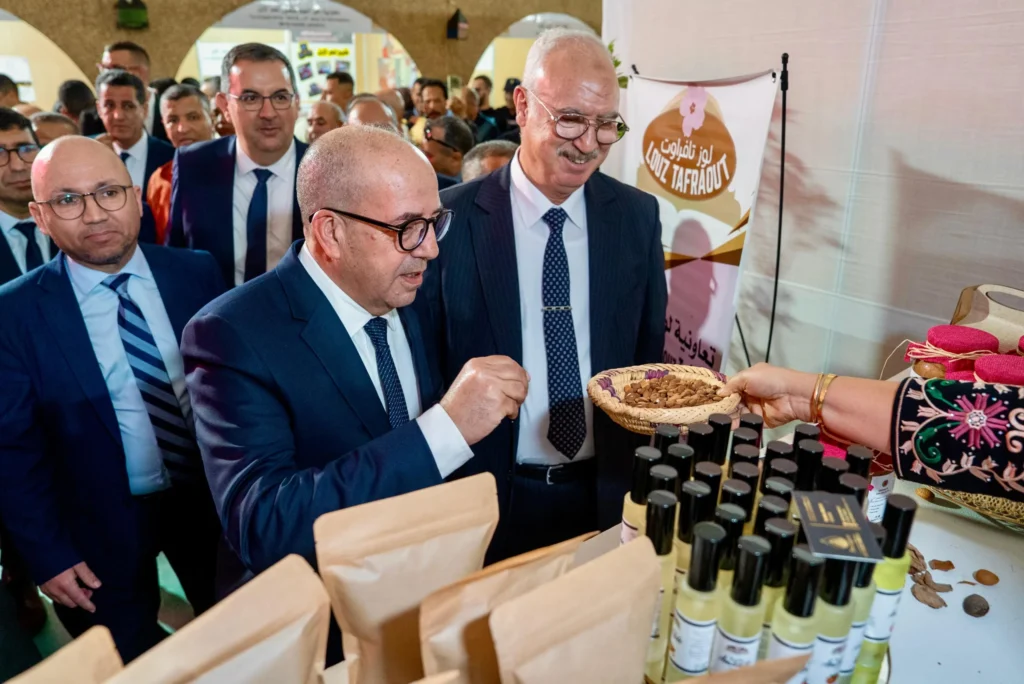Rabat – The 12th edition of the Almel Festival was opened in Tafraout on Friday. It was launched by Morocco’s Minister for Agriculture, Maritime Fishing, Rural Development as well as water and forests, Ahmed El Bouari.
During his visit, El Bouari also traveled to the province of Tiznit to monitor and start new agricultural and rural development projects as part of the Green Generation Strategy (2020–2030).
He was accompanied by the governor of the province of Tiznit, the President of the Regional Agricultural Chamber of Souss-Massa, the President of the Provincial Council of Tiznit, elected officers and high-ranking representatives of the ministry.
Runs from April 10th to April 13th under the topic “Land of Almonds, Wealth of Tomorrow”, which Almond -proof The aim is to promote the almond sector and to support the local economy and culture according to a declaration by the ministry.
The festival also aims to celebrate the legacy of the anti-Atlas region and to improve the social and economic conditions of local communities by promoting values based on solidarity and social economy. The almond is considered a symbolic and main agricultural product of the region, as the statement has determined.
Read too: Moroccans prefer “cheaper” American almonds despite self -sufficient production
The festival comprises a place of 2,000 square meters and houses over 110 exhibitors from local products from all over Morocco, in addition to professional players in this sector. The organizers expect more than 80,000 visitors.
The almond trees in the Souss-Massa region, especially in the anti-Atlas area, cover a total of 23,431 hectares. This corresponds to about 10% of the Morocco national almond growing area, which is estimated at 246,000 hectares. The region produces around 27,600 tons of almonds or around 17% of national production every year.
As part of the visit, the minister also started the first phase of a cactus plant program in the rural communities of Aglou and Bounaamane in the province of Tiznit.

This program focuses on planting a special type of cactus that is resistant to the Cochineal insect, which has severely affected the cactus systems in recent years. The program will cover 5,000 hectares in five rural communities between 2022 and 2027. It includes plants and maintenance, training and support for farmers. The total budget for the full program is 55 million.
In the first phase, around 500 hectares are planted in the first phase to benefit 11 million, which benefits 420 farmers. The total area planned for plants in this phase is 1,000 hectares.





